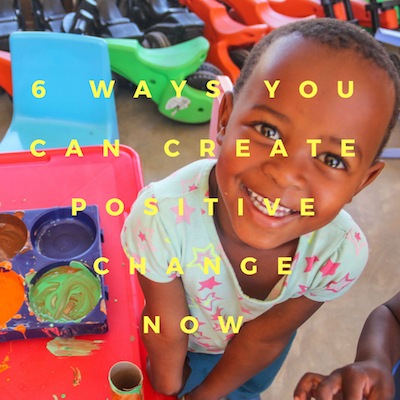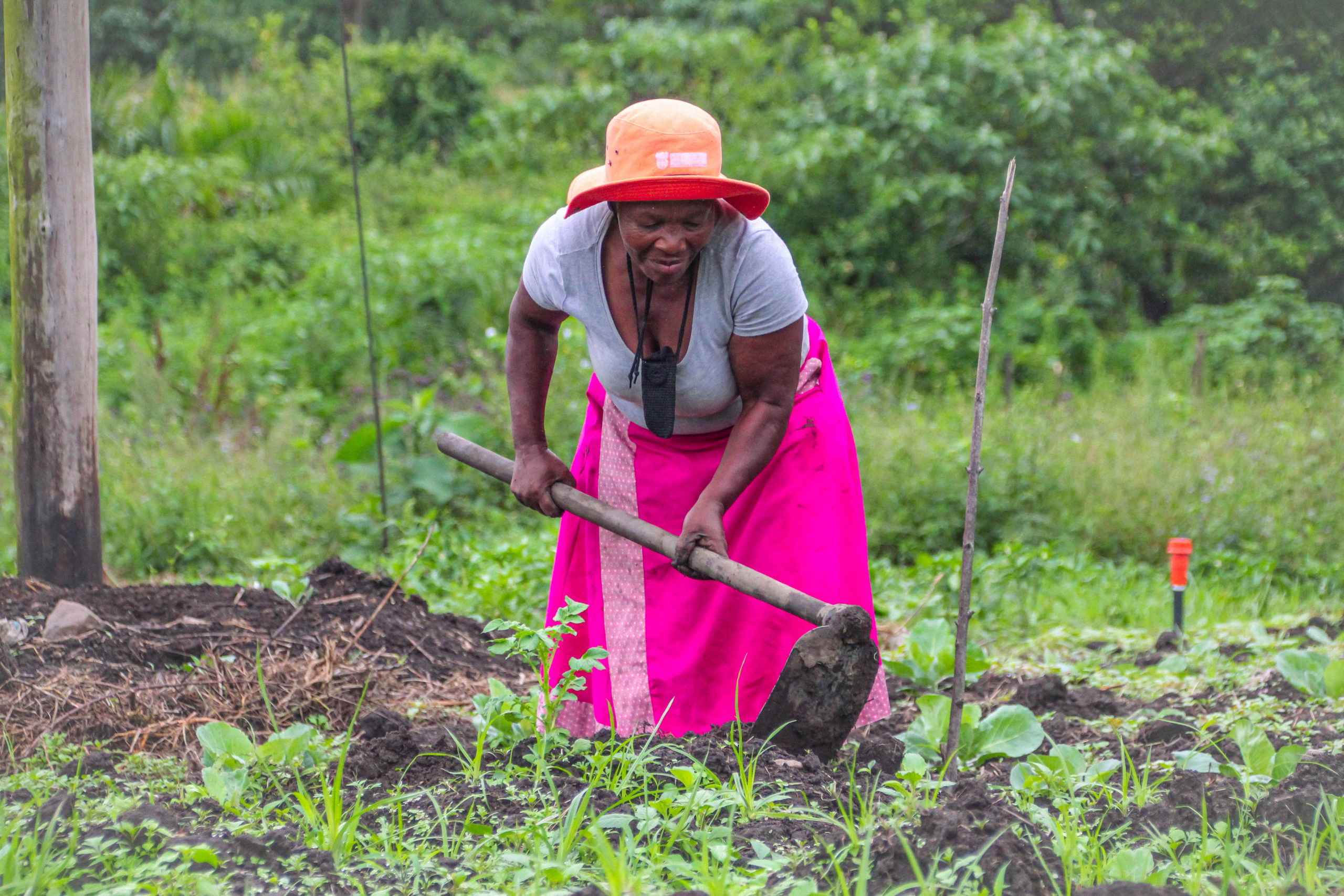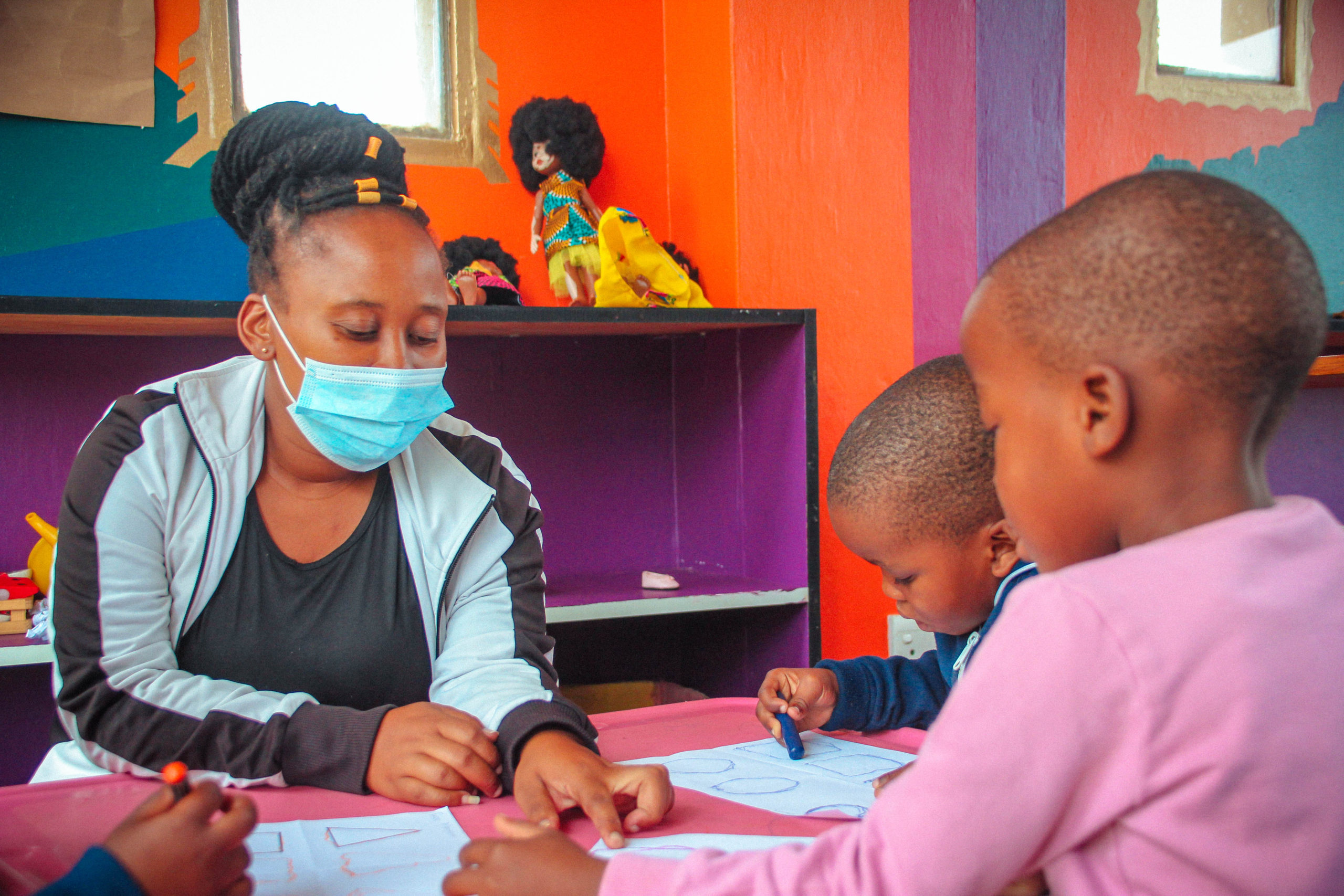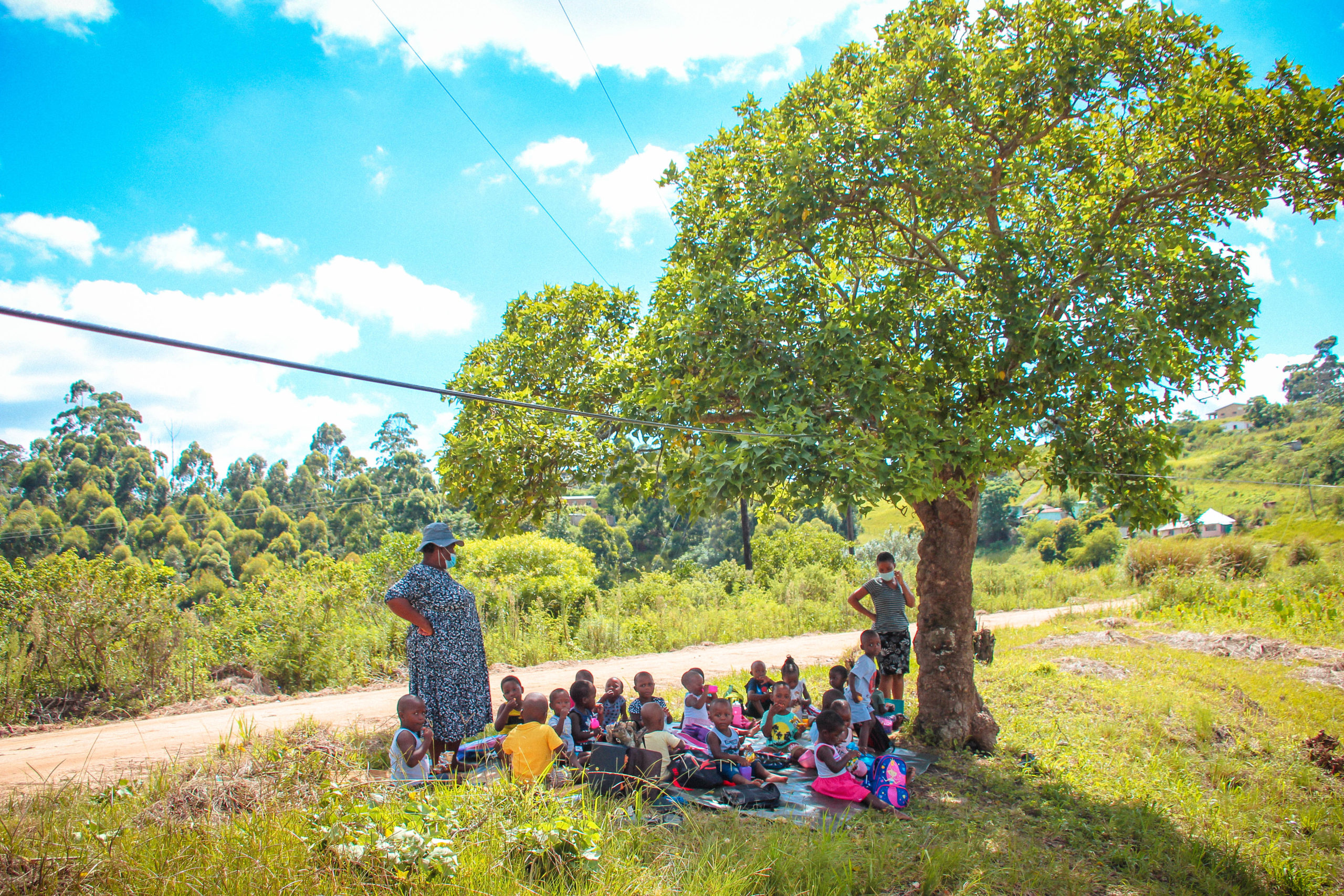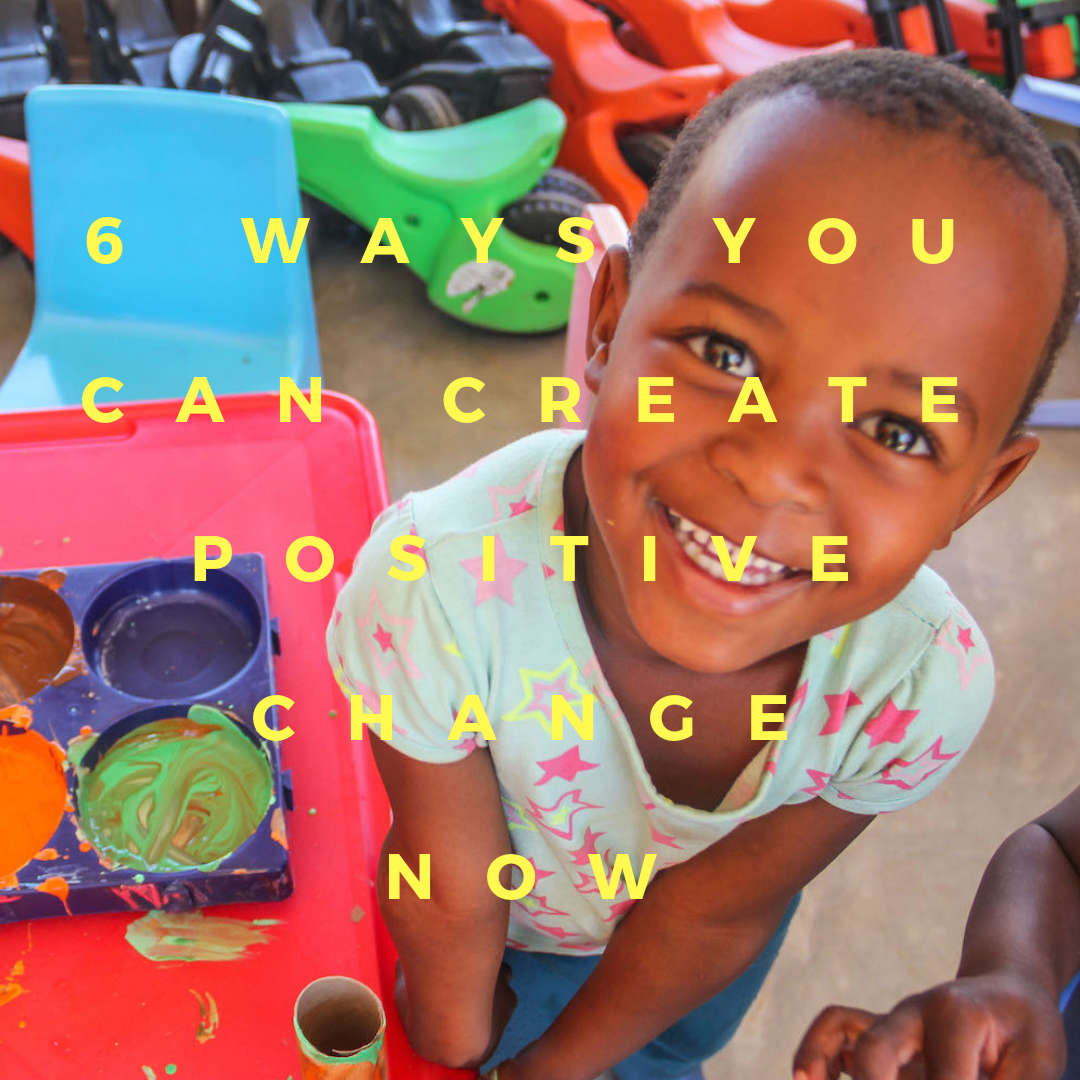
When I was young, I wanted to change the world. I aspired to achieve, and I didn’t waste any time. I wanted to live in a way that positively impacted others…and someday, I hoped to use the opportunities and privilege I had been given to help others.
I had no idea what that looked like in a career. Spoiler alert: I still have no idea.
Today, there are a few things I have uncovered and realizations that have helped me think more critically and open my eyes wider. I realized that every single person, no matter his/her career, can have a positive impact on the world : a teacher can inspire children to create and learn, a police officer can protect and fight for a person’s rights, a CEO can create a business that stands up for the environment, a graphic designer can create campaigns that advocate for social justice issues, and so on.
It is our perspective and the way we live that shapes our impact.
Although the list is infinite, here are six ways I believe an individual (YOU) can create positive change, locally or globally.
1. Be Authentic
Our experiences are all different and each person is one of a kind. Thus, we have our own unique value and perspective. Rather than replicating what we see, read, or hear, we can think critically and develop our authenticity. This authenticity helps build higher self-esteem, boosts creativity, and strengthens our empathy skills.
Many of us feel a sense of social responsibility to use what we have to help others. Acting on these feelings of responsibility is a great way to reinforce our own personal values and live in a way that is true to our own beliefs.
“Don’t ask what the world needs. Ask what makes you come alive and go do it. Because what the world needs is people who have come alive.” -Howard Thurman
2. Be Open and Think Critically
Make a commitment right now to continually bettering yourself, with the understanding that our knowledge is never complete. That is why we believe being a lifelong learner is essential in life. Even the knowledge we have now is full of biases, gaps, and limitations. We need to explore, create, revise, listen, and think critically all the time. Now, more than ever, to solve the issues we face in our societies we need to listen to different perspectives and voices. Our open mind can lead to new solutions and understanding that requires us to continually escape our comfort zones. True innovators shape the world from an open mind and an empathetic heart, engaging with people in mutually-beneficial ways.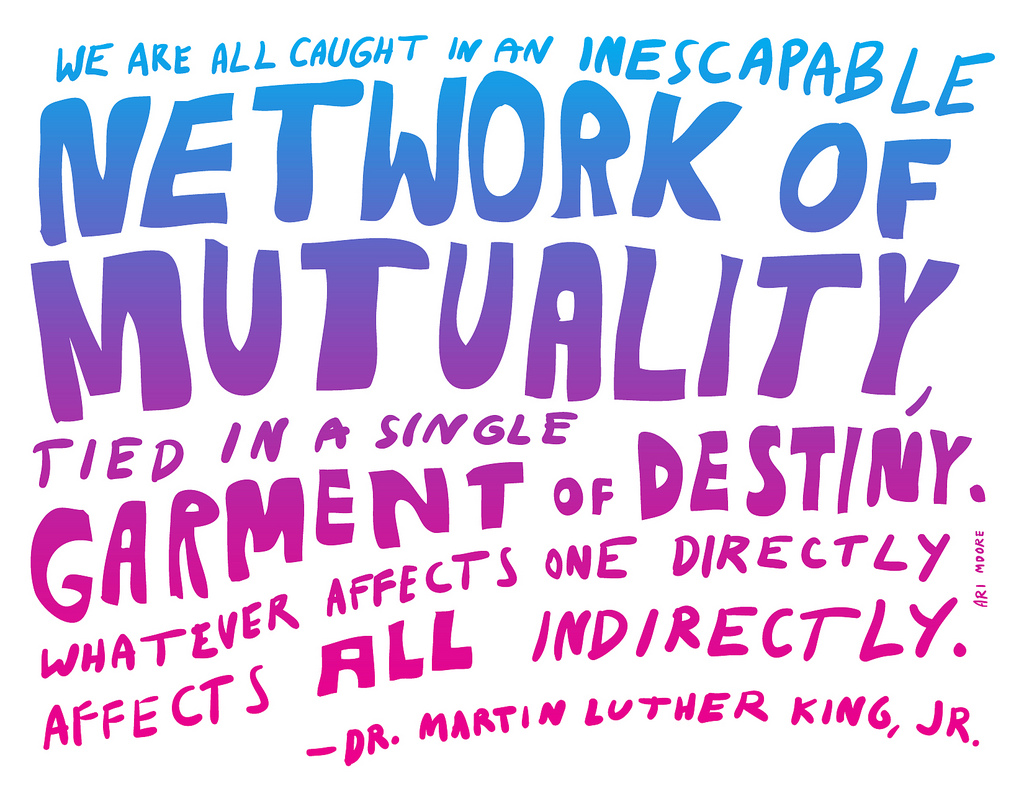
3. Challenge the Status Quo
When examining individuals throughout history who have challenged the status quo, we often find that the hero is a deviant – especially when conforming to societal norms is harmful to others or is unjust. To change the world for the better, we must invest our efforts into what can be, rather than what is. As lifelong learners, we seek to learn and find out the root cause of the issue by researching and understanding the contributing factors to find solutions. When we see something that does not align with our values, such as inequality or lack of access to basic needs, we don’t settle for it to stay that way, we fight. Heroes like Martin Luther King Jr. and Nelson Mandela are great examples of non-conformists to unjust laws. People who challenge the status quo effect change because they believe change will bring a more positive way of living for everyone.
4. Pay it Forward
Small acts of kindness have unforeseen ripple effects that can carry around the world. These can be simple deeds such as holding the door open for someone, smiling at a stranger, buying lunch for a friend, or donating to a charity (like Thanda!). We realise that it doesn’t take much to make someone’s life a little better and, by harnessing that positivity, our lives are also happier. In our daily lives, one of the best ways we can use our power for good is our spending power. As consumers, we all have the choice to spend according to our own personal values, whether it is to protect the environment, or improve the quality of education.
“I alone cannot change the world, but I can cast a stone across the waters to create many ripples.” -Mother Teresa
5. Be a Part of Something Bigger
Creating positive change makes you part of a global movement of change-makers. For instance. donating a little bit of money or time to charity may not seem like much. However, when your donation is joined with others, it becomes something much bigger, such as our group of Thanda Superheroes (link). If you think about it, $10 a month can feed someone, employ someone, educate someone, and so on. You can consistently support a child’s life and growth, changing their opportunities and outcomes. A Grade 3 learner commenting on Thanda said, “Sometimes if they [my family] did not cook at home, I [still] go to sleep on a full stomach.” Ultimately, a lot of people investing in a cause boosts the sustainability of the organisation and increases its life-time value. These investments stack up and lead to better overall efforts.
Watch this thought-provoking TED talk about re-thinking the way we look at charity.
6. Empower and Inspire Others
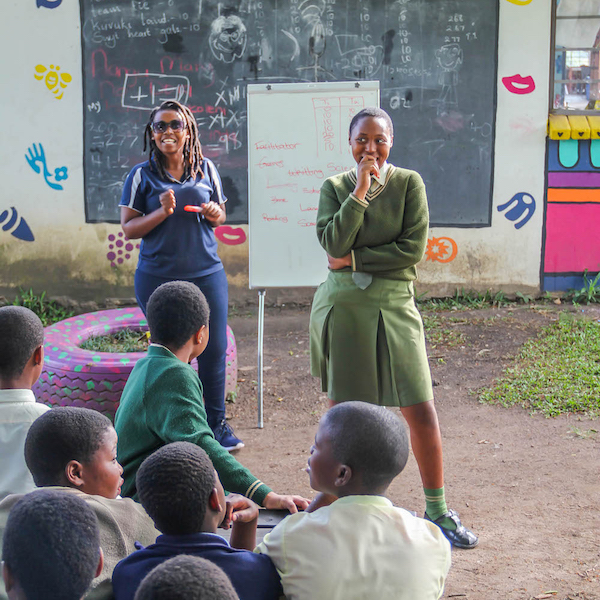
Living your life as a positive example to others introduces younger generations to the importance of generosity. We focus on empathy in our Creative Learning Curriculum because children love to help others, but don’t often see what it is like to put themselves in someone else’s shoes. Seeing their mentors, friends, or parents create positive change helps children value similar causes and have a greater appreciation for what they have.


